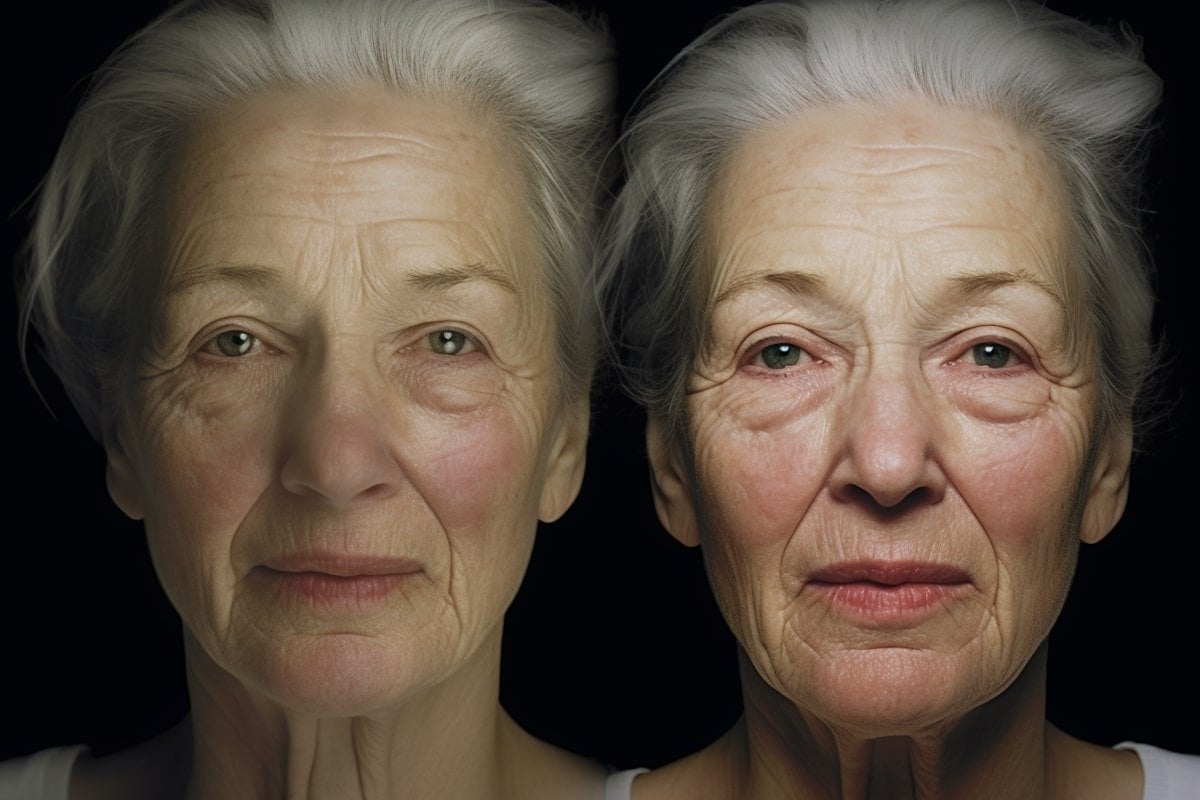Don't do this until proven in humans.
Feeling Hungry? It Might Just Slow Aging
Summary: The sensation of hunger itself may slow aging. Researchers discovered that flies induced to feel hungry, either through diet or brain stimulation, lived longer.
They also found that hunger prompts changes in the brain’s epigenome, affecting gene expression and consequently, feeding behavior and aging.
While the researchers caution that these findings should not be directly applied to humans, they believe that similar mechanisms could modulate hunger drives in other species.
Key Facts:
- The feeling of hunger itself might contribute to slower aging, according to a study from the University of Michigan.
- This study demonstrated that flies induced to feel hungry, either by dietary changes or by stimulating specific neurons in the brain, lived significantly longer.
- The research also identified that hunger prompts changes in the brain’s epigenome, which in turn affects gene expression, feeding behavior, and the aging process.
Source: University of Michigan
From low-carb to intermittent fasting, surgery to Ozempic—people turn to a seemingly never-ending array of diets, procedures and drugs to lose weight.
While it has been long understood that limiting the amount of food eaten can promote healthy aging in a wide range of animals, including humans, a new study from University of Michigan has revealed that the feeling of hunger itself may be enough to slow aging.
Previous research has demonstrated that even the taste and smell of food can reverse the beneficial, life-extending effects of diet restriction, even without its consumption.
These intriguing findings drove first author Kristy Weaver, Ph.D., principal investigator Scott Pletcher, Ph.D., and their colleagues to examine whether changes in the brain that prompt the drive to seek food could be behind longer life.

“We’ve sort of divorced [the life extending effects of diet restriction] from all of the nutritional manipulations of the diet that researchers had worked on for many years to say they’re not required,” said Pletcher. “The perception of not enough food is sufficient.”
To do this, they induced hunger in flies in several ways. The first was to alter the amount of branched-chain amino acids, or BCAAs, in a test snack food and later allow the flies to freely feed on a buffet of yeast or sugar food.
Flies fed the low-BCAA snack consumed more yeast than sugar in the buffet than did the flies fed the high-BCAA snack. This kind of preference for yeast over sugar is one indicator of need-based hunger.
The researchers noted that this behavior wasn’t due to the calorie content of the low-BCAA snack; in fact, these flies consumed more food and more total calories. When flies ate a low-BCAA diet for life, they also lived significantly longer than flies fed high-BCAA diets.
To look at hunger apart from dietary composition, they used a unique technique, activating neurons associated with the hunger drive in flies using exposure to red light, using a technique called optogenetics.
These flies consumed twice as much food than did flies who were not exposed to the light stimulus. The red-light activated flies also lived significantly longer than flies used as a control.
“We think we’ve created a type of insatiable hunger in flies,” said Weaver. “And by doing so, the flies lived longer.”
What’s more, the team was able to map the molecular mechanics of hunger to changes in the epigenome of the neurons involved—and to identify that neurons responded to the presence or absence of a specific amino acid in the diet.
These changes can affect how much of specific genes are expressed in the brains of flies and, consequently, their feeding behavior and aging.
The authors note that caution should be used before applying the findings to people, but “there’s every reason to expect that the mechanisms discovered are likely to modulate hunger drives in other species.”
They next plan to examine how the drive to eat for pleasure, present in both flies and people, may also be linked to lifespan.
About this aging research news
Author: Kelly Malcom
Source: University of Michigan
Contact: Kelly Malcom – University of Michigan
Image: The image is credited to Neuroscience News
Original Research: Closed access.
“Effects of hunger on neuronal histone modifications slow aging in Drosophila” by Kristy Weaver et al. Science
No comments:
Post a Comment